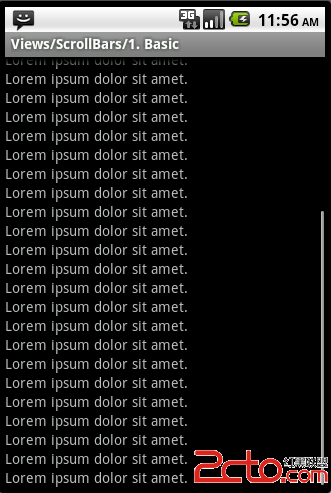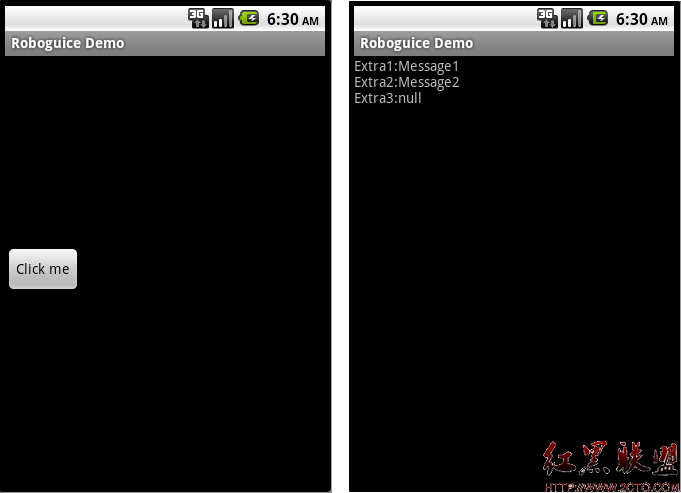Android Audio代码分析4 - AudioSystem::getOutputSamplingRate
前面看过的代码中,经常会调用到AudioSystem类中的getOutputSamplingRate函数,getOutputFrameCount函数,getOutputLatency函数等。
这些函数的实现基本类似,今天就细细品味下AudioSystem::getOutputSamplingRate函数。
*****************************************源码*************************************************
status_t AudioSystem::getOutputSamplingRate(int* samplingRate, int streamType)
{
OutputDescriptor *outputDesc;
audio_io_handle_t output;
if (streamType == DEFAULT) {
streamType = MUSIC;
}
output = getOutput((stream_type)streamType);
if (output == 0) {
return PERMISSION_DENIED;
}
gLock.lock();
outputDesc = AudioSystem::gOutputs.valueFor(output);
if (outputDesc == 0) {
LOGV("getOutputSamplingRate() no output descriptor for output %d in gOutputs", output);
gLock.unlock();
const sp<IAudioFlinger>& af = AudioSystem::get_audio_flinger();
if (af == 0) return PERMISSION_DENIED;
*samplingRate = af->sampleRate(output);
} else {
LOGV("getOutputSamplingRate() reading from output desc");
*samplingRate = outputDesc->samplingRate;
gLock.unlock();
}
LOGV("getOutputSamplingRate() streamType %d, output %d, sampling rate %d", streamType, output, *samplingRate);
return NO_ERROR;
}
**********************************************************************************************
源码路径:
frameworks\base\media\libmedia\AudioSystem.cpp
###########################################说明################################################
status_t AudioSystem::getOutputSamplingRate(int* samplingRate, int streamType)
{
++++++++++++++++++++++++++++++++++++++++++++++++++++++++++++++++
// audio output descritor used to cache output configurations in client process to avoid frequent calls
// through IAudioFlinger
class OutputDescriptor {
public:
OutputDescriptor()
: samplingRate(0), format(0), channels(0), frameCount(0), latency(0) {}
uint32_t samplingRate;
int32_t format;
int32_t channels;
size_t frameCount;
uint32_t latency;
};
----------------------------------------------------------------
OutputDescriptor *outputDesc;
// typedef int audio_io_handle_t;
audio_io_handle_t output;
// Default类型的stream,强制转为music
if (streamType == DEFAULT) {
streamType = MUSIC;
}
++++++++++++++++++++++++++++++++++++++++++++++++++++++++++++++++
audio_io_handle_t AudioSystem::getOutput(stream_type stream,
uint32_t samplingRate,
uint32_t format,
uint32_t channels,
output_flags flags)
{
audio_io_handle_t output = 0;
// 如果是direct模式,或者可能会使用direct模式,就不能使用cache中保存的output
// Do not use stream to output map cache if the direct output
// flag is set or if we are likely to use a direct output
// (e.g voice call stream @ 8kHz could use BT SCO device and be routed to
// a direct output on some platforms).
// TODO: the output cache and stream to output mapping implementation needs to
// be reworked for proper operation with direct outputs. This code is too specific
// to the first use case we want to cover (Voice Recognition and Voice Dialer over
// Bluetooth SCO
if ((flags & AudioSystem::OUTPUT_FLAG_DIRECT) == 0 &&
((stream != AudioSystem::VOICE_CALL && stream != AudioSystem::BLUETOOTH_SCO) ||
channels != AudioSystem::CHANNEL_OUT_MONO ||
(samplingRate != 8000 && samplingRate != 16000))) {
Mutex::Autolock _l(gLock);
// gStreamOutputMap中保存的是stream与output之间的对应关系
// 调用getOutput时,如果获取不到output,就会调用AudioPolicyService的getOutput函数获取output,
// 并将stream与output的对应关系添加到gStreamOutputMap。(也就是该函数下面的处理)
output = AudioSystem::gStreamOutputMap.valueFor(stream);
LOGV_IF((output != 0), "getOutput() read %d from cache for stream %d", output, stream);
}
// 如果Cache中找不到stream对应的output
if (output == 0) {
++++++++++++++++++++++++++++++++++++++++++++++++++++++++++++++++
// establish binder inte易做图ce to AudioFlinger service
const sp<IAudioPolicyService>& AudioSystem::get_audio_policy_service()
{
gLock.lock();
// 如果gAudioPolicyService尚未创建,则创建一个,否则直接将gAudioPolicyService返回
if (gAudioPolicyService.get() == 0) {
++++++++++++++++++++++++++++++++++++++++++++++++++++++++++++++++
ServiceManager是一个管理所有service的一个东东
sp<IServiceManager> defaultServiceManager()
{
// 如果gDefaultServiceManager不为空,直接将其返回
补充:移动开发 , Android ,





